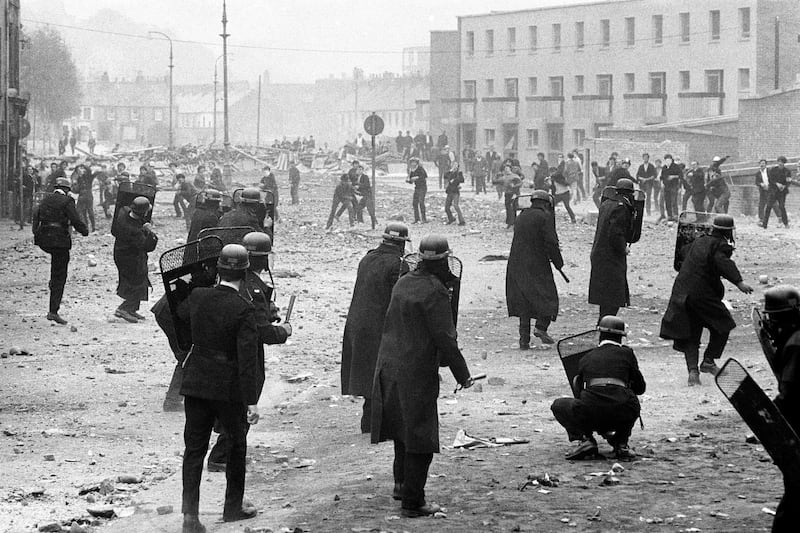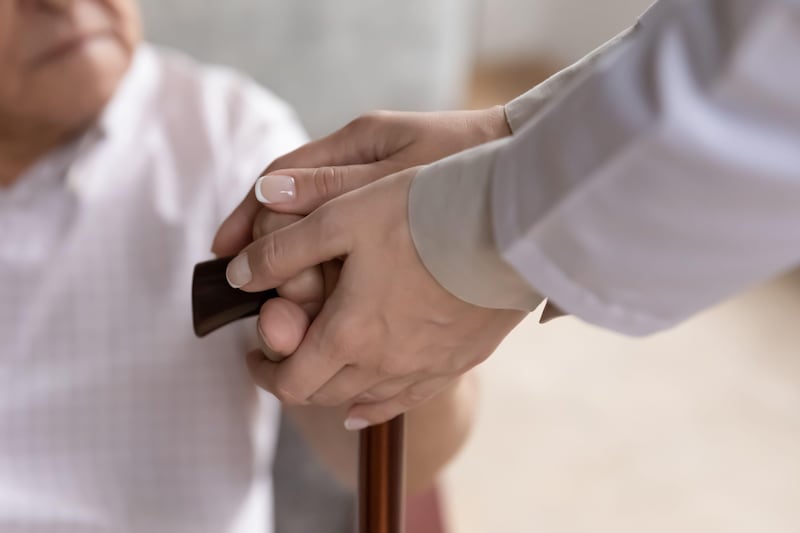Almost 10% of adults in England, Scotland and Wales feel they meet the definition of a victim or survivor of the Troubles, according to a new report.
The research, carried out on behalf of the Commission for Victims and Survivors in Northern Ireland, also found that those polled said their mental health is still affected today by their experiences of the conflict.
The survey also reveals a vast majority believe the Troubles should be taught in secondary schools across Britain.
Working with YouGov, the Commission carried out a poll of the adult population in Britain covering England, Scotland and Wales.
Andrew Sloan, CEO of the Commission, said their work had previously “largely focused on victims and survivors living in Northern Ireland”.

“However, we also recognise the importance of acknowledging the enduring impact of the Troubles/conflict on victims and survivors living elsewhere,” he said.
“In recent years, we have broadened our work to recognise the needs of victims and survivors across the different jurisdictions supporting efforts to ensure their voices are heard and issues addressed.”
The report found 5% of those polled have been bereaved by a Troubles-related incident, while 4% said their mental health had been affected by their experiences of the conflict.
Of this figure, 34% said their mental health continues to be affected today.
The report also reveals that of those who could identify as a victim and/or survivor of the Troubles, just 7% currently receive services or support.
Significantly, 11% of those who said they could identify as a victim and/or survivor said they don’t currently access any support or services, but would like to.
The survey found nine in 10 agree that at least one tailored service or support should be available for victims and survivors of the Troubles/conflict.

The need to address the mental health legacy of the Troubles saw 63% of respondents support the establishment of a specialist psychological trauma service for victims and survivors in GB.
The survey also gauged opinions regarding legacy and Troubles education with more than four in five supporting the history of the conflict being taught in secondary schools in GB.
It found 78% believe it is important to address the legacy of the Troubles/conflict.
Mr Sloan said the data reveals there is “a keen interest amongst the GB population to learn more about the Troubles and its impacts”.
“It seems that a lack of awareness is not due to a lack of interest, rather the absence of measures ensuring that such knowledge is available to young people in Great Britain via the education system,” he added.
The Commission said the data also supports a cross-jurisdictional approach to addressing legacy and the needs of victims and survivors.
Of those surveyed, 84% said it is important the Executive has a role in addressing the legacy of the Troubles, along with the UK government (81%) and Irish government (80%).
“This is a crucial set of figures”, said Mr Sloan.
“Across our surveys, cross-jurisdictional collaboration on legacy issues has received immense support.
“The Commission believes that dedicated and sustained cross-government cooperation is imperative in addressing the needs of victims and survivors, preventing future division and conflict and promoting wider reconciliation.”








